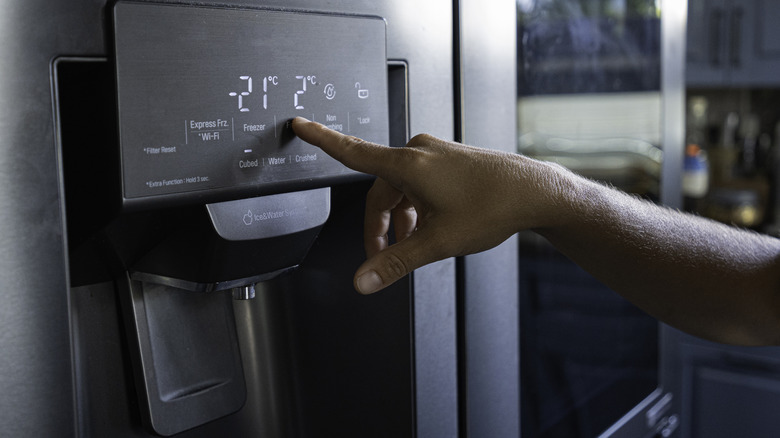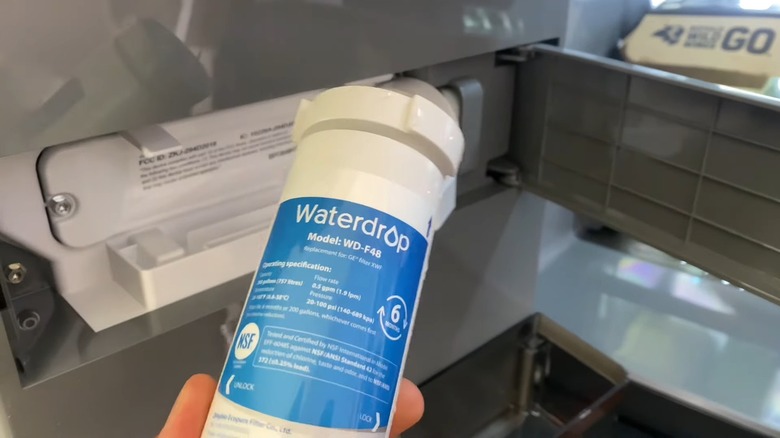Why Your Fridge Refuses To Pour Water Without An Expensive Filter
We may receive a commission on purchases made from links.
The advent of smart devices promised greater convenience and advanced functionality. Smart refrigerators, for example, can come with Wi-Fi capability, touch screens, and can help you put together a grocery list. It sounds amazing until you discover the darker side of smart devices, a topic that manufacturers and retailers often prefer not to discuss. For instance, Samsung may have just clinched the title for 'Worst Refrigerator' with its new pilot program that includes advertisements on its touchscreen display.
Unfortunately, high-tech modern appliances also collect information about you, and in some cases, force you to purchase expensive replacement components like name-brand water filters. Appliances have become more computerized, and manufacturers have been able to include things like Technical Protection Measures (TPM). While TPM is meant to protect appliance makers from those wanting to tamper with their products, some smart refrigerator owners have discovered that this technology also limits customer choice and autonomy.
A single official XWFE refrigerator water filter from GE, for example, is listed for around $50 on Amazon. Generic filters, which fit the XWFE fridge, that include three filters for just over $20, are more affordable. However, the official filter has an RFID chip built into the exterior wrapper to communicate with the TPM when installed, something generic filters typically lack. Imagine TPM as a digital padlock, and the RFID chip is the key. So, if you try to install a less expensive filter, the fridge will reject it, display an error, and refuse to dispense water.
There are ways to circumvent the TPM, but it could potentially land you in legal trouble
Found within the Digital Millennium Copyright Act (DMCA) of 1998 is section 1201, which makes it illegal to eliminate or change any electronic rights management data unless given permission. The more common term for these copyright protections is digital rights management (DRM), which usually pertains to entertainment mediums like music and movies.
However, in a roundabout way, smart appliance manufacturers can claim that TPM is employed to protect their products from being manipulated. And by altering your cheaper refrigerator water filter to work with your appliance, or telling others how to, you could be violating copyright law. According to the DMCA, the penalty for violating section 1201 could be up to a massive $500,000 fine or half a decade in prison, and that's just for the first offense. If done a second time, you could be facing as much as $1 million in fines and 10 years behind bars.
It's not clear if anyone has ever actually been arrested for this, but it is a troubling development in terms of consumer protections. Fortunately, you can still find refrigerators without all the "smart" features (for now) from every major refrigerator brand. But as technology continues to advance, a conventional fridge could become more challenging to find in the future.

